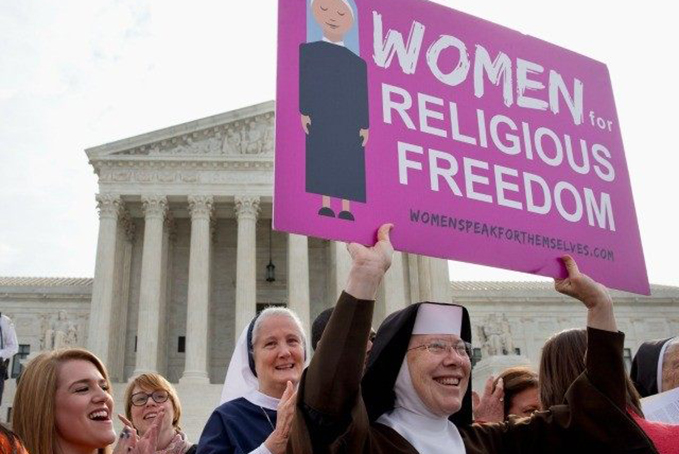-
Tips for becoming a good boxer - November 6, 2020
-
7 expert tips for making your hens night a memorable one - November 6, 2020
-
5 reasons to host your Christmas party on a cruise boat - November 6, 2020
-
What to do when you’re charged with a crime - November 6, 2020
-
Should you get one or multiple dogs? Here’s all you need to know - November 3, 2020
-
A Guide: How to Build Your Very Own Magic Mirror - February 14, 2019
-
Our Top Inspirational Baseball Stars - November 24, 2018
-
Five Tech Tools That Will Help You Turn Your Blog into a Business - November 24, 2018
-
How to Indulge on Vacation without Expanding Your Waist - November 9, 2018
-
5 Strategies for Businesses to Appeal to Today’s Increasingly Mobile-Crazed Customers - November 9, 2018
Supreme Court Sends Latest Obamacare Challenge Back To Lower Courts
The main issue in Zubik v. Burwell is whether the mandate, which requires employer-sponsored health plans to cover contraceptives, and its accommodation violate the Religious Freedom Restoration Act of 1993.
Advertisement
Some say it’s too early to celebrate because the Supreme Court still failed to give a decision on whether or not the revisions on the 2010 Obamacare health program violates religious practice of religious-affiliated institutions. “In particular, the court does not decide whether petitioners’ religious exercise has been substantially burdened”, the unsigned ruling stated. Those religious objectors won’t face heavy fines for refusing to provide coverage.
The nation’s highest court is opting out of a major ruling on a birth control dispute between faith-based groups and the Obama administration.
“The government has shown a tremendous degree of sensitivity and flexibility in accommodating religious concerns from employers”, Sepper said. The justices have upheld the most significant parts of the president’s health care law – the individual mandate and the health insurance subsidies – but have ruled against the law’s Medicaid expansion and one aspect of its birth control coverage rules.
Meanwhile, Sister Constance Viet of Little Sisters of the Poor, which opposed the mandate, told FOX News she was equally pleased.
“You might remember that 2 years ago in the Hobby Lobby case the court said that a private company that had deeply held religious beliefs, they didn’t have to follow those plans”, says Bursch.
Justice Sonia Sotomayor filed a concurrence, which was joined by Justice Ruth Bader Ginsburg, underscoring the limited nature of the court’s action and cautioning lower courts not to read anything into it.
In case you’ve missed it, we’re in the midst of an ongoing battle for birth control coverage, and both sides of the argument are duking it out at the Supreme Court level.
“Little Sisters of the Poor and others see by themselves as complicit in a moral evil”, Pybas, a constitutional law expert, said.
The unusual non-ruling does, however, come with a recommendation and strong endorsement from the evenly split judges that the lower appeals courts rule in favor of a compromise. The decision Monday referred to those new briefs as suggesting that providing contraceptive coverage without requiring notice from religious employers is feasible..
For now, only those groups that have challenged the rules are exempt from providing contraceptives, but the Supreme Court said the government was still making sure the women affected had access to cost-free birth control.
“The court expresses no view on the merits of the cases”.
Advertisement
Hence the lawsuit. Most of the appellate courts around the nation agreed with the government that the solution it offered was fair and equitable to all parties, but one court disagreed, forcing the Supreme Court to accept a hearing. “We look forward to addressing the remaining details as we advance these cases in the lower courts”.





























